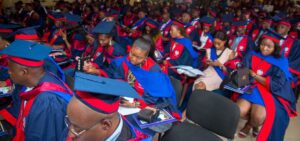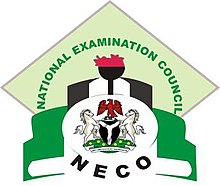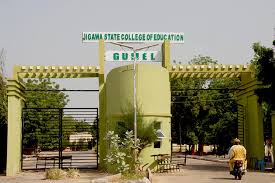
Don recommends overhauling Nigerian Teacher Education Curriculum
Prof. Haladu Bayero, Dean, Faculty of Education, Ahmadu Bello University, Zaria, has recommended the overhaul of the Nigerian teacher education curriculum and the model of its implementation to align it with the technology needed in 21st century teaching and learning.
Bayero made the recommendation in a lead paper entitled “Preparing in-service and pre-service teachers for the new normal of quality education amidst COVID-19 pandemic,” he presented on Wednesday, at the maiden International Conference organised by the Faculty of Education, Federal University Dutse (FUD), Jigawa.
The conference, holding between Oct. 13 and Oct. 15, has as its theme: “Delivering Quality Education Amidst COVID-19 Pandemic and Beyond: Issues, Challenges and Solutions.”
He explained that the overhaul could be done by both the Nigerian Universities Commission (NUC), National Commission for Colleges of Education (NCCE), and other agencies responsible for teacher education, by reviewing the curriculum to align it with global practices.
The dean added that specialists in digital technology integration should be deployed to teacher education institutions as technical officers, who in turn would be responsible for hands-on training of students-teachers on how to create learning content, using digital technology.
“These officers should be those that have qualification in instructional technology.
“Possession of digital workshops should also be one of the criteria for accrediting any teacher education programme in Nigerian tertiary institutions.
“This workshop should serve as the centre for acquiring practical skills in integrating technology in the 21st century classroom.
“Also, refresher courses should be mounted for in-service teachers to upgrade their knowledge and competencies, to deploy digital technology in teaching and learning,” the dean said.
In his keynote address entitled: “COVID-19 and Delivery of Education in Nigeria: The Wound First Before Plaster of Paris,” Prof. Muhammad Yakasai, said even before the pandemic, education in Nigeria was plagued by a deep wound which severely affected its quality and impeded the standard desired.
Yakasai, who is a lecturer in the Department of Education, Bayero University Kano (BUK) said: “ The theme of the conference is important because the status of education today is alarming and needs thoughts that will address its issues and the challenges surrounding its delivery.
“However, focusing on delivery of quality education amidst COVID-19 and beyond is bounded by many issues.
“Before the pandemic, education in Nigeria was plagued by a deep wound which severely affected its quality and impeded the standard desired.
“As the wound is piercing deep into the flesh of education, another calamity befell its delivery. The calamity, which looked like fracture, broke the bone directly under the wound.
“The point to be expressed here is that, as delivery of quality education is being hampered by many factors, COVID-19 pandemic came and added more salt to the wound, thus making various stakeholders to ponder on what to do: to heal the wound first before the plaster, or put the plaster on top of the wound in an attempt to mend the fracture.”
He pointed out that there had been numerous conferences and researches on the impact of COVID-19 on education, and similar numerous conferences on the delivery of education within and without Nigeria have been and are still being conducted.
“But one may ask what impact do these efforts have on delivery of quality education amidst the pandemic which still pervades the world,” he asked?
Yakasai, therefore, recommended good governance of education, adequate funding of the sector, provision of adequate infrastructure and teaching facilities, development of competent and well motivated teaching force.
In addition, there should be a way of managing overcrowded classrooms, repositioning the learners value orientations, checking the influence of media technology on learning, curbing high rate of examination malpractice, as well as addressing security challenges, to first of all address the present predicament of education on its delivery.
Earlier, in his address of welcome, Dr Abdullahi Yakubu, the Dean, Faculty of Education, FUD, expressed the hope that the participants would contribute and share their wealth of experience on how to boost and make positive impacts on teaching and learning in higher education.
“It is a fact that on the part of governments, confronting challenges hinder smooth delivery of quality education in Nigeria, even as building sound education is an obligation on our shoulders for a better future for our children, youths and society.
“Competitiveness for earning healthy, wealthy and peaceful living today, largely depends on the level of education we’re up to.
“We should, therefore, not risk the survival of our children, youths and society, for others to turn us into slaves, when education can help us escape,” Yakubu said.
“Information and communication technology like the internet, medical science, agricultural science, electronic and electrical engineering, still make a mockery of us, compared to our counterparts in the federation and the rest of the world.
“We ought to put all hands on deck to refine and redefine our commitments to education, despite the constraints of COVID-19, drug abuse, poverty, insecurity and overall high cost of living,” the dean added.



